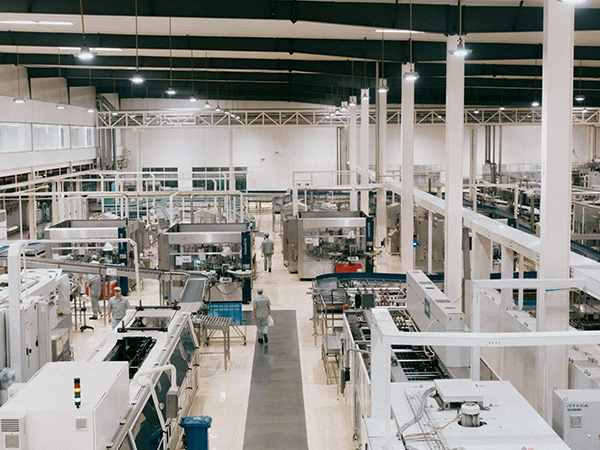Amid generational shifts and industry-specific challenges, manufacturers can use skills-based hiring to more reliably source their talent.

By Josh Millet
The eighth annual Hiring Benchmark Survey by Criteria Corp found that hiring professionals in manufacturing are 28 percent more likely to say they are facing a talent shortage than any other industry surveyed – including nonprofits and healthcare, sectors that have traditionally struggled to recruit and retain talent. Moreover, 71 percent of hiring professionals in manufacturing say it’s hard to find high-quality candidates, according to the survey.
A larger generational shift has created talent and experience gaps across the general workforce. A record number of Americans will reach retirement age in 2025, and at least 4 million are expected to turn 65 each year through 2027. That amounts to an unprecedented drain of trade skill and institutional knowledge from the U.S. workforce – of which manufacturing makes up roughly 8 percent, or about 15 million jobs.
Not surprisingly, the Hiring Benchmark Survey found that 57 percent of hiring professionals in manufacturing expect to hire more in the next year, particularly for non-entry-level roles. It all adds up to a talent shortage – one for which there is no easy or single fix. But arriving at solutions starts with a better understanding of the problem.
Manufacturing hiring professionals in the space have historically had a narrow candidate pool from which to source their talent. Particular professional experience, educational background, industry tenure, certification and similar requirements and expectations designed to help identify the best candidates have instead become limiting factors in hiring.
More recently, entrenched stigmas and misunderstandings of the space have been additional obstacles in drawing talent to the field. Younger generations are less interested in manufacturing careers than previous ones, steered away by stereotypes of dirty and labor-intense jobs. And with Gen Z having finally overtaken Baby Boomers in the workforce, cultural differences have exacerbated the problem. Manufacturing traditionally hasn’t offered the sort of remote options, flexible work hours and purposeful career-development opportunities that Gen Z workers tend to find most attractive.
Finally, a technological issue: AI use among job candidates has led to an increase in the overall number of applications being filed – roughly one in every five (21 percent) hiring professionals receive more applications than they’re able to review, according to the Hiring Benchmark Report – and a dilution in the validity of those initial applications as a talent signal. That schism, coupled with the specific technical requirements in manufacturing and rapid technology changes, have amplified the long-established and more recent hiring challenges in the industry.
The challenges being faced by manufacturing hiring professionals are many and, in some cases, seemingly intractable – but they can be mitigated, and perhaps overcome. Hiring teams in the industry that have gone above and beyond in sourcing the best candidates may have to continue to do so (especially in the near term) based on the extent of their needs. But with skills-based hiring, human resources teams can work smarter rather than harder to dramatically improve their current results.
Skills-based hiring addresses the talent shortage in the manufacturing space by widening the traditional candidate pool while sharpening the targeting capabilities of a hiring team, enhancing a company’s ability to land more well-qualified talent. Here are a few skills-based hiring tools that hiring teams in manufacturing can incorporate into their strategy almost immediately to improve the talent-sourcing results in their organization:
Reduce or remove educational requirements: Technology is advancing faster than ever, and most industries – including manufacturing – have had to keep pace with it. Meanwhile, higher education has struggled to produce new, qualified talent fast enough to meet the demand created by all this progress. Already, companies are rethinking educational requirements – and learning how the decision can not only expand the hiring talent pool but also improve their organizations.
A recent survey found that one in four employers planned to remove bachelor’s degree requirements for some roles by the end of 2025. In the report, companies that had already eliminated this requirement were discovered to have opened up a more diverse pool of candidates. Consider the relevance of degrees and certain certifications in your own organization and avoid creating unnecessary or outdated barriers to entry that may prevent you from finding candidates with excellent potential or the right kind of parallel skills from another vertical.
Assess rather than ‘screen’: Particularly in the manufacturing field, pre-employment testing makes for a powerful tool to discover the right worker for the job. This means identifying transferable skills rather than experience or qualifications. In an environment in which labor supply is constrained and technology is also advancing so quickly, demanding experience or acquired technical knowledge of a particular type of machinery may be both ineffective and counterproductive. Instead manufacturers may be better off assessing a candidate’s transferable skills, general mechanical sense, and aptitude for learning in a mechanical context. Manufacturing-specific assessments can also measure adaptability and safety-related tendencies.
Because of the talent shortage and the manufacturing challenges outlined above, identifying potential is as important as finding the perfect candidate. Science-based pre-employment testing helps highlight prospects with the aptitude to learn and perform the job, and the personality to make that journey and deliver results on a reasonable timeline.
Tactical career-development and training programs: Overwhelmingly, manufacturing executives agree in viewing training programs as one of the most effective ways to close the skills gap. No one knows your business better than your business, so prioritize and enhance in-house programs that build careers, develop better employees and foster retention. Make the most of your own workforce to grow from within, hold on to all that institutional knowledge and reduce the need to make difficult and often expensive hires for hyper-skilled and management positions. And to get the most out of your training programs, pre-employment testing can help predict which candidates have the aptitude and ability to learn quickly and excel in manufacturing roles, so you get the best ROI out of these efforts.
Hiring in the manufacturing industry will likely remain an entrenched challenge for the foreseeable future. But an organization only has to be smarter and more nimble than its competition, and more intentional hiring and training practices help provide that edge. Skills-based hiring, supported by science-driven assessments and teaching tools, expand manufacturing’s talent puddle into a pool and give its adopters the opportunity to both hire and grow the industry’s best candidates.

About the Author:
Josh Millet is a nationally recognized career and hiring expert with over 20 years of experience. He founded Criteria, an SaaS-based pre-employment and employee testing service that reduces turnover and improves hiring outcomes for employers and job candidates, and currently serves as its CEO.
Scott Ellyson, CEO of East West Manufacturing, brings decades of global manufacturing and supply chain leadership to the conversation. In this episode, he shares practical insights on scaling operations, navigating complexity, and building resilient manufacturing networks in an increasingly connected world.